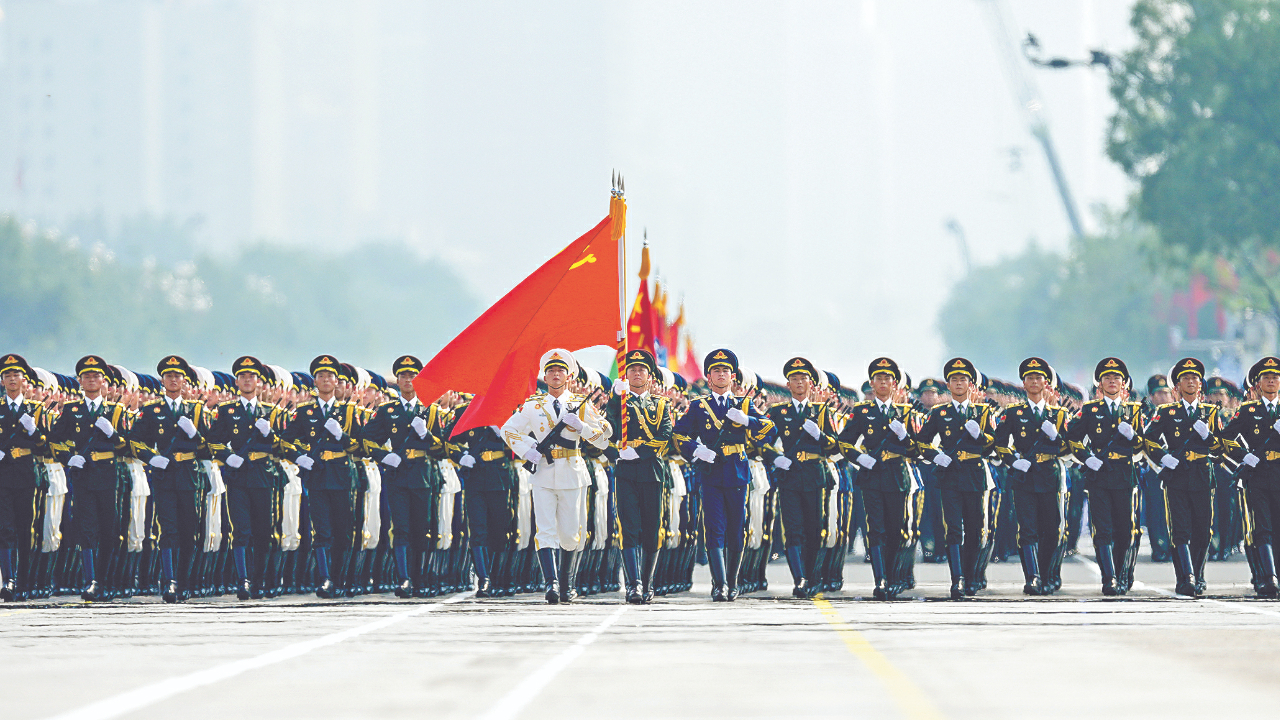The V-Day parade's power
Writer: Don Rechtman | Editor: Yu Xiyao | From: Original | Updated: 2025-09-11
I' m Don Rechtman, a U.S. citizen currently residing in Shenzhen.

Don Rechtman
There was a parade recognizing the 80th anniversary of V-Day on Sept. 3, the day the Japanese military unconditionally surrendered to China 80 years ago, ending the Chinese People’s War of Resistance Against Japanese Aggression and the World Anti-Fascist War.
Honor guards escort the Chinese national flag for a flag-raising ceremony during the grand gathering in Beijing on Sept. 3. Xinhua
I had long held the view that if there were any military conflict between the United States and any other country, the United States would summarily win. I believed this until the day when I watched China’s V-Day military parade that took place in Beijing. While watching, I realized something very important, a distinction separating the development between the U.S. and Chinese military: the U.S. military developed for profit while the Chinese military developed for people.
When U.S. President Donald Trump hosted his military parade, it was to serve as a show of force, of how the world’s largest military expenditure was able to develop weaponry of frighteningly devastating destructive power, something eminently suitable for sale to other nations. The military personnel participating in the parade were clearly disheartened and unenthusiastic about being there.
In very stark contrast, China’s parade served as a show of progress, allowing veterans of the Chinese People’s War of Resistance Against Japanese Aggression to appreciate the importance of their actions in the 1930s. Those participating in the parade, their stern faces and stances notwithstanding, showed their pride and excitement and sense of honor of just being there.
How did this experience alter my view of U.S. dominance? Here’s what I realized:
The people working on weaponry in the U.S. are salaried or paid hourly, and thus have no real motivation for real innovation and creation; it is the corporate owners who acquire the profits when the weapons are sold worldwide.
In China, a worker’s motivation is quite different: they’ve experienced or at least learned from their elders what can happen in war. Indeed, China’s history of in-fighting among warlords prior to the establishment of the Republic of China in 1912 and China’s experience of the “century of humiliation,” coupled with their deeply ingrained philosophy of caring for others, has motivated them to create the best possible defensive tools and to join what is now the world’s most populous military.
The days of U.S. hegemony are at an end. China is showing the world that leaders do not have to be violent to attain power and respect. The ancient Chinese text “The Art of War” serves as the instruction manual for Xi Jinping’s demonstration by example to other leaders that creating global prosperity and peace is the true key to lasting power. It is possible that other national attendees may absorb some of that wisdom and take it back to their homes.